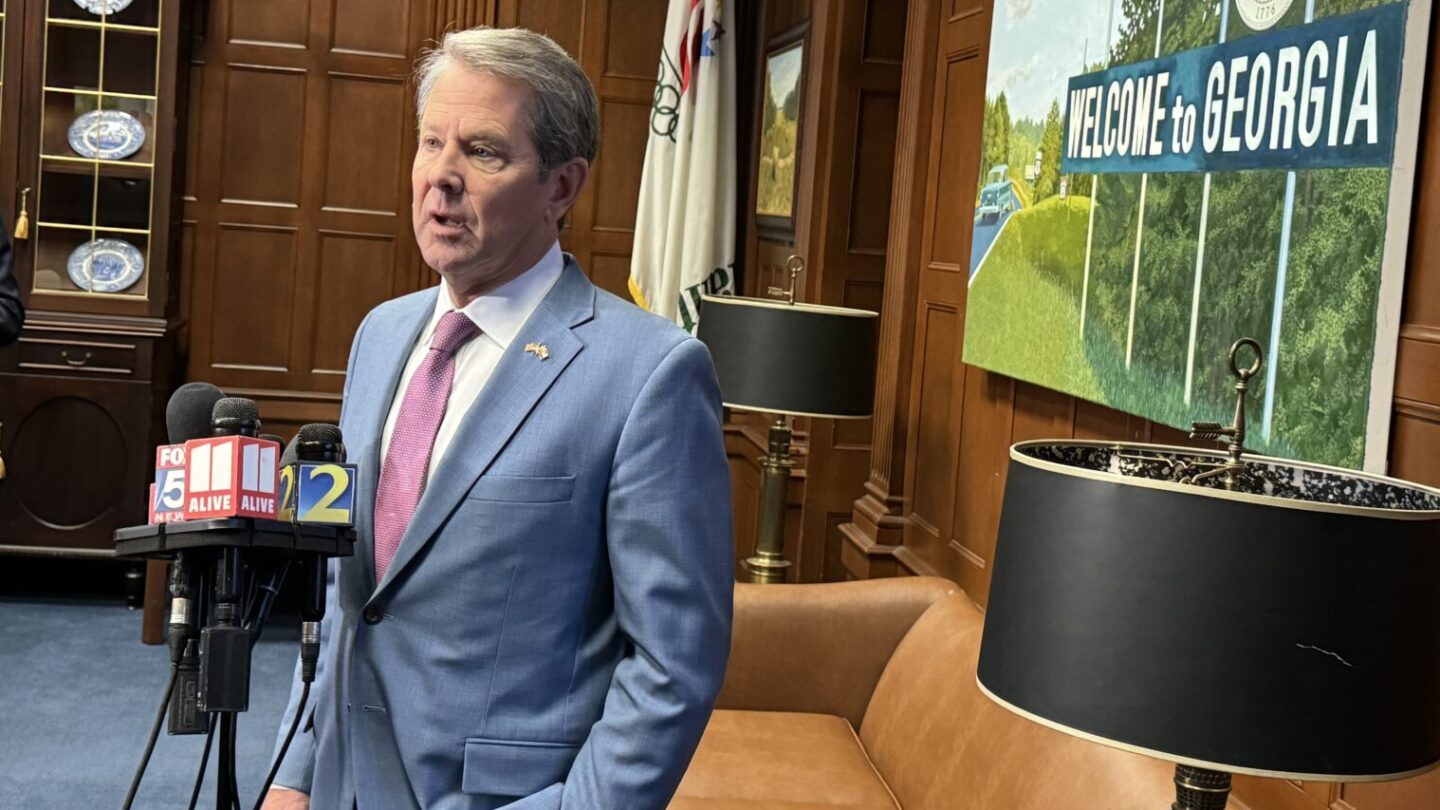Gov. Brian Kemp reupped his commitment Tuesday to the economic development deal struck more than two years ago with electric vehicle start-up Rivian.
“We honor our commitments in our state, and we’re going to do that in regards to this site, and we’re expecting the company to honor their commitments as well,” Kemp told reporters at the state Capitol.
The much-celebrated project, first announced in late 2021, is tied to $5 billion in investment from the company and the promise of 7,500 jobs.
The California-based automaker announced last week that it would pause plans to build the plant in rural east Georgia and instead start production on two new models at its existing plant in Illinois.
Company officials said the decision would help them more quickly produce the new models – including a new midsize SUV that starts at a lower price point of $45,000 – and save them more than $2 billion. The announcement led to a jump in the company’s stock price.
Kemp said Rivian Founder and CEO RJ Scaringe called the governor a couple days before the announcement.
“It was disappointing, but I understand the business case that they made by doing what they’re doing. I don’t necessarily like that, but I understand,” Kemp said.
Scaringe said last week that the Georgia plant “remains really important to us,” though the company has not said when it plans to start construction. The governor said company officials have told him they remain committed to the project.
“What they relayed to me is that there is no doubt here,” Kemp said.
Kemp made the comments to reporters the morning after a panel of state senators grilled the director of the Georgia Department of Economic Development, Pat Wilson, as part of the legislative budget process. Lawmakers are currently working on next year’s budget.
The lawmakers expressed dismay over the setback and voiced skepticism about the company’s ability to follow through with their commitment and the driving public’s interest in making the switch to electric vehicles.
“If they come back to Georgia and start making good on their promises, I’ll be the guy that says I’m surprised,” said Cataula Republican Sen. Randy Robertson, who said he was troubled that the company only gave the state a couple days’ notice before publicly announcing their decision.
Others have suggested the state move on. Lawmakers asked at Monday’s meeting if the state could recruit another company for the site.
“It is disappointing news to hear Rivian is wavering on its commitments to the local community and the entire state of Georgia,” Lt. Gov. Burt Jones said in a statement. “Nonetheless, we now have a great mega site available to offer a willing, interested, and trusted future partner.”
Wilson faced questions Monday about what went wrong and whether the state could move on with another company at that site instead of waiting six years to find out if the project here will still happen.
The state offered Rivian a $1.5 billion incentive package. Under the project’s economic development agreement, Rivian must meet 80% of its commitment to spend $5 billion and create 7,500 jobs by the end of 2030 through 2049.
“Until they tell us that they cannot live up to that commitment or they breach contract, then we are under an obligation to allow them to live up to their commitment,” Wilson told lawmakers.
Kemp said he understands the lawmakers’ frustration but said much of the state’s investment so far is tied to site, which he argued only improves the value of the publicly owned land.
“We don’t want to send any signals either that says, ‘Hey, Georgia’s going to renege on our commitments,’ whether it’s to Rivian or any other companies that we’re working with now that are coming to our state,” Kemp said. “I think that would be bad for our business environment, and I think when cooler heads prevail, they’ll understand that even though this stings a bit.”
Instead of property tax payments, the company pays the local development authority what is called a PILOT payment. Rivian has made $3 million in these payments so far, with the most recent check cut this month. The company would also receive job tax credits in the long term as it beefs up its payroll.
This story was provided by WABE content partner Georgia Recorder.









